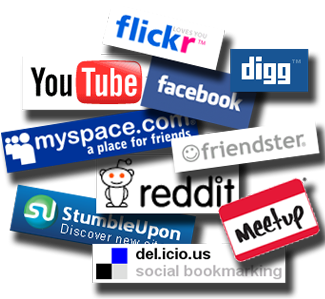 Gone are the days when all job seekers had to worry about were their résumés and cover letters. Today, those documents still remain a staple of the job search process, but they are joined by a significant and growing pre-screening phenomenon: reviewing an applicant’s social-networking websites (SNW). Some job seekers are even being asked for their Facebook passwords during or right after an initial interview. Even Terror outfits are using Facebook as a recruitment tool to recruit loners from Western nations to their cause, claims a leading counter-terrorism expert.
Gone are the days when all job seekers had to worry about were their résumés and cover letters. Today, those documents still remain a staple of the job search process, but they are joined by a significant and growing pre-screening phenomenon: reviewing an applicant’s social-networking websites (SNW). Some job seekers are even being asked for their Facebook passwords during or right after an initial interview. Even Terror outfits are using Facebook as a recruitment tool to recruit loners from Western nations to their cause, claims a leading counter-terrorism expert.
Employers are increasingly turning to Facebook and other social-networking sites to pre-screen new hires because it may be a fairly accurate reflection of how good they’ll be at the target job, according to a study published in the Journal of Applied Social Psychology last month.
Researchers hired HR types to rate hundreds of college students’ Facebook pages using questions that reflected Big Five personality characteristics (Extraversion, Conscientiousness, Emotional Stability, Agreeableness, and Openness to Experience). The researchers asked HR professionals to rate the Facebook profiles to predict how well the students would fare as employees.
Six months later, the researchers followed up by contacting the current employers of the people whose profiles had been rated. They found a strong correlation between the predictions made by the Facebook raters and the actual performances as rated by the employers.
Furthermore, the psychometric properties of the study were fairly decent:
-
First, SNW ratings demonstrated sufficient inter-rater reliability and internal consistency.
-
Second, ratings via SNWs demonstrated convergent validity with self-ratings of the Big Five characteristics.
-
Third, SNW ratings correlated with job performance, hirability, and academic performance criteria and the magnitude of these correlations was generally larger than for self-ratings.
-
Finally, SNW ratings accounted for significant variance in the criterion measures beyond self-ratings of personality and cognitive ability.
In this virtual day and age, it is critically important to remember that what you put online, even if it’s a mistake, may not be reversible and may not go away. The red flags for most employers seem to be drugs, drinking, badmouthing former employers, and lying about one’s credentials or qualifications. Yet, Facebook profiles usually contain a wealth of information that employers are prohibited, under federal, state and local laws, from using in discriminatory ways. Photos and posts can reveal race, gender, age, national origin, disability, even sexual orientation.
Key takeaway? Your online presence may be used as an initial screening interview about your personality or your reputation—be circumspect about what you post and get onto that privacy policy page and limit who can see what about you. In Othello, Shakespeare’s Iago may have had it pegged: “Reputation is an idle and most false imposition; oft got without merit, and lost without deserving . . . ”


 Blogging is another means of communication that reflects a person’s attitudes, ideas, interests, and values. Many of these characteristics gel with a few others to ultimately make up an individual’s personality or as we refer to it here at Hogan – “reputation.”
Blogging is another means of communication that reflects a person’s attitudes, ideas, interests, and values. Many of these characteristics gel with a few others to ultimately make up an individual’s personality or as we refer to it here at Hogan – “reputation.”